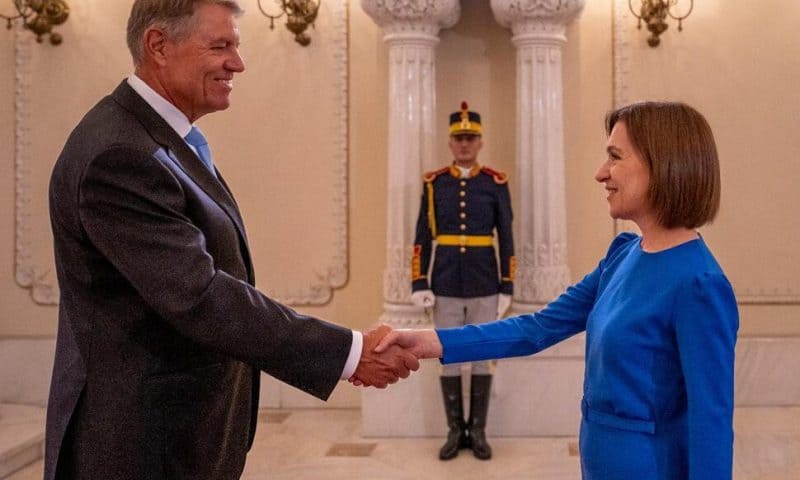A two-day summit in Romania has started in the country’s capital bringing together 12 European Union member states situated between the Baltic, Black and Adriatic Seas
BUCHAREST, Romania — A two-day summit in Romania began on Wednesday bringing together 12 European Union member states situated between the Baltic, Black and Adriatic Seas, as the grouping of mostly formerly communist countries aims to boost ties amid Russia’s war in Ukraine.
The Three Seas Initiative, which is being held in the capital, Bucharest, hosts high-ranking officials from EU countries as well as representatives from partner countries and aims to improve interconnectivity in the transportation, energy, and digital fields.
Before the event, the office of Romanian President Klaus Iohannis said that during the summit, he would emphasize the importance of the initiative a year and a half after Russia’s “brutal and illegal aggression” against Ukraine for its importance in strengthening regional and European resilience.”
Addressing the initiative on Wednesday via video link, Ukrainian President Volodymyr Zelenskyy said that Russia’s recent attacks on Ukraine’s Danube ports are “at the border of our three seas,” referring to a recent drone attack.
Romania’s defense minister, Angel Tilvar, said that apparently pieces of the drone have been found on his country’s territory, a NATO member.
“What would have happened if it had succeeded as it did earlier in history in getting a foothold in Ukraine,” he asked. “February 24 changed everything, Europe, all of us, managed to prove that we are capable of historic acts of solidarity,” adding that this summit is about unity.
Launched in 2016, the Three Seas Initiative includes Romania, Bulgaria, Hungary, Poland, Slovakia, Slovenia, Austria, Estonia, Croatia, the Czech Republic, Latvia and Lithuania. Austria is the only member that isn’t formerly a communist country.
Romanian Foreign Minister Luminita Odobescu tweeted Wednesday that she had “excellent discussions” with the U.S. assistant secretary of state for energy resources, Geoffrey Pyatt, about joint projects that aim to bolster regional energy security.
Odobescu said the initiative provides a “perfect opportunity for strengthening regional resilience” and can bolster Moldova and Ukraine’s relations with the EU bloc, to which both countries became candidate members in June last year.
Iohannis’ office said that during the summit, a joint accord will be signed making Greece the grouping’s 13th participating state, and that both Ukraine and Moldova will obtain the status of associate participating states.
On the sidelines of the event, Moldovan President Maia Sandu met Wednesday with Romanian Prime Minister Marcel Ciolacu. Afterward, Sandu said that Moldova — which borders Ukraine and has been hard-hit by the war next door — is “prepared to contribute to Europe’s connectivity and unity.”
Later on Wednesday, Iohannis and Ciolacu will hold a news conference with the presidents of Poland and Lithuania, and Croatia’s prime minister. On Thursday, an annual business forum will also be held.
The initiative states on its website that it “was born out of a shared interest in developing transport, energy and digital infrastructure connections on the EU’s north-south axis.”
The U.S. government’s climate envoy, John Kerry, is also attending the initiative.

